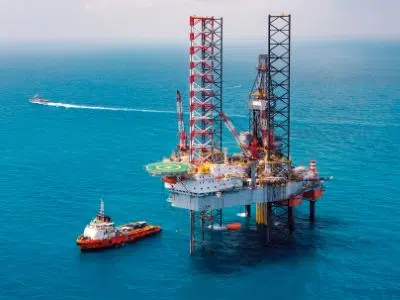On April 20, 2010, there was an explosion aboard the Deepwater Horizon, an oil drilling rig operating in the Gulf of Mexico. 11 workers were killed as a result of the explosion and subsequent sinking of the rig. 4 million barrels of oil flowed from the damaged well over an 87-day period, making it the largest spill of oil in the history of marine oil drilling operations.
It was determined that the cause of the explosion was negligence on the part of BP, Halliburton, Transocean, and others.

In December of that year, the United States government filed a complaint in District Court against BP Exploration & Production and other defendants (including MOEX Offshore 2007 LLC and Transocean Offshore Deepwater Drilling Inc.) alleged to have a role in the disaster. A record-setting settlement was reached in the case, with BP Exploration & Production paying an unprecedented $5.5 billion for violations of the Clean Water Act penalty and up to $8.8 billion for damages to the region’s natural resources.
The scope of the Deepwater Horizon disaster generated a flurry of new safety and environmental regulations meant to balance the government’s role in developing offshore energy with its responsibility to protect offshore workers and the nation’s natural resources. One of these was the creation of the Bureau of Safety and Environmental Enforcement, or BSEE, a federal agency tasked with regulating offshore drilling in the United States.
The BSEE Has Been Undercounting and Underreporting Offshore Oil & Gas Deaths
Now, more than a decade after Deepwater, it appears as if these regulations haven’t been as successful as first thought.
According to a recent investigation, the BSEE hasn’t been doing its job. Apparently, the methods the agency uses to collect and analyze data pertaining to fatalities among offshore workers don’t accurately reflect the true numbers. The result has been to make it appear as if working in the offshore oil and gas industry is far safer than it actually is.
The investigation, conducted by New Orleans Public Radio station WWNO, Drilled News, and Southerly, revealed that the BSEE has been routinely undercounting and underreporting fatalities among offshore oil and gas workers. These undercounts are a result of inconsistent and missing data, as well as loopholes in the regulations that mean some offshore oil and gas worker deaths go unreported.
Nearly Half of Offshore Worker Fatalities Were Not Included by the BSEE
Using information provided by the agency under a Freedom of Information Act request, the investigators determined that nearly half of known offshore worker fatalities in the Gulf of Mexico from 2005 to 2019 weren’t included in the BSEE’s data because they didn’t fit in with the agency’s reporting criteria. For instance, the BSEE doesn’t count offshore worker fatalities that occur in state waters, deaths that occur to workers while in transport to or from offshore facilities, or deaths that happen on offshore platforms that aren’t work-related.
One example included a worker who died as a result of a heart attack while working aboard an offshore oil rig. The BSEE classified the death as “non-occupational,” so it was not included in their offshore incident statistics. In another, six workers died when a lift boat capsized while transporting them to a work site. Their deaths were unreported because they died on the boat rather than on an oil and gas drilling platform.
Get Help from Offshore Accident Attorneys Lambert Zainey Smith & Soso
Just because an offshore worker’s death is not reported by the BSEE doesn’t mean their employer can’t be held responsible for the accident that resulted in that death. The Jones Act, OCSLA, and other maritime laws give offshore workers and their families the right to seek compensation when a worker becomes injured or killed as a result of their employer’s negligence.
The offshore injury law firm of Lambert Zainey Smith & Soso has been protecting the rights of workers in the maritime industry for almost 50 years. This extensive experience gives us an insight into maritime law that few law firms possess. We’ve scored an impressive number of victories for our clients, including a $330,000,000.00 settlement for workers killed or injured in the Murphy Oil Refinery explosion.
If you’ve been injured or a loved one killed in an accident aboard an oil and gas drilling rig that was caused by the negligence of your employers or a co-worker, it’s important to take steps to protect your rights. Contact Lambert Zainey Smith & Soso at (800) 521-1750 to schedule a free initial consultation with a leading maritime accident injury attorney.

